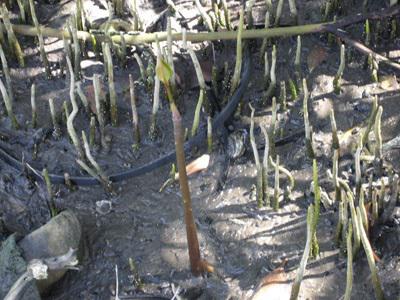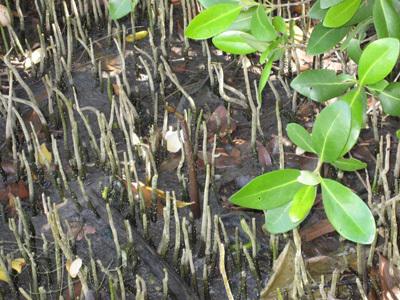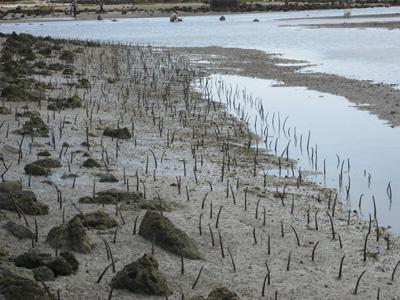Nguyen Thi Thanh Thuy
Other projects
22 Oct 2008
Extension of Community Based Mangrove Restoration Model Focusing on Fallow Shrimp-Farming Ponds
The overall aim of the project is to replant 10 ha of mangrove in destroyed areas unusable for other purposes. Concurrently, it is to improve awareness of the local communities on protection, sustainable use and long term benefits under the ‘code of conduct for responsible mangrove management’.

Mangrove forest is considered a natural valuable common property resource supporting livelihoods of coastal communities both directly and indirectly. In 1975, Khanh Hoa had 3000 ha of mangrove forest. However, as ineffectively implemented local authority conservation principles combined with limited awareness of local communities on the long term benefits of the mangrove ecosystem, many such areas in Khanh Hoa province have been destroyed for agriculture, urbanization and frequently shrimp aquaculture.

According to Khanh Hoa Agriculture and Rural Development Department, in 2000, the total area of mangrove forest in Khanh Hoa remained about 100 ha. In fact, mangrove destroyed areas are not ideally suited to shrimp farming because of acid sulphate soils. On the other hand, the spontaneous development of intensive shrimp culture has produced large amounts of waste water and solids which cause water pollution and outbreaks of disease. The biggest lost in Khanh Hoa, at 2 million USD, was in 2001.

Many local farmers are now in debt and have to cease culture. Consequently, hundreds of shrimp farming ponds in the mangrove destroyed areas are now fallow. The local authorities are aware the negative impacts on environment and the long term benefits of mangrove ecosystem management. In 2004, the local authorities invested in the replanting of 2ha of mangroves belonging to Van Tho commune, Van Ninh, Khanh Hoa. The overall aim of the project is to replant 10 ha of mangrove in the destroyed areas unusable for other purposes. Concurrently, it is to improve awareness of the local communities on protection, sustainable use and long term benefits under the ‘code of conduct for responsible mangrove management’.
Based on co-management principles and community participatory, the project working team will coordinate with Van Ninh People’s Committee, Department of Agriculture & Rural Development to organize and carry out the following activities:
- Conducting a sustainable Project Management Unit (PMU;
- Surveying and selecting areas in Van Ninh District where the level of local commitment will allow the sustainable replanting new mangroves;
- Organizing a workshop on purposes of the project and potential benefits in terms of increased natural productivity resulting in selection of volunteers participating the project;
- Selection of suitable species, collection and replanting the seedlings;
- Monitoring monthly and protecting the area from exploitation and destruction;
- Improving awareness on “Protection of natural mangrove ecosystem and its long term benefits” with target beneficiaries focusing on local staffs and communities through different activities viz workshops, preparing panels, leaflets.